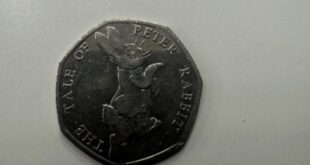The Royal Family may have access to the world’s finest cuisines, but there are four foods they typically avoid during engagements – and one of them might surprise you. While some of these items are common in most British kitchens, others are considered “rarer” and are avoided due to the risk of illness, while another is off-limits due to Royal protocol.
Two everyday items that members of the Royal Family try to avoid are onions and garlic. Former Royal chef John Higgins once revealed: “At Buckingham Palace, you don’t cook with garlic. I suppose, in case you get the royal burp.”
This rule, which is primarily enforced during Royal events and state banquets both at home and abroad, was confirmed by Queen Camilla in 2018. During an appearance on MasterChef Australia, when asked about prohibited Royal foods, Camilla responded: “I hate to say this, but garlic. Garlic is a no-no.”
Judge Gary Mehigan then asked: “So garlic is a no-no? Because you’re talking, chatting? ” To which the Queen replied: “Yes, exactly. So you always have to lay off the garlic.”
Another food item that the royals are forbidden from consuming during Royal events or tours is shellfish, to mitigate the risk of food poisoning, reports the Express.
Former butler to King Charles, Grant Harrold, has previously disclosed: “When dining, the Royal Family has to be careful with shellfish due to shellfish poisoning, due to their work schedules. It is a very sensible move to abandon having seafood when out and about on public duties.
“We don’t want a member of the Royal Family having a serious reaction to food poisoning. Especially if [they] are on an overseas tour. Therefore you will not normally find this on the royal menu.”
(Image: Getty)
However, the monarch was seen breaking this rule when he was photographed eating oysters during the Whitstable Oyster Festival in 2013. Furthermore, there is one particular food that Charles detests so much that he’s prohibited it from all Royal residences.
The King – who has even received praise from animal rights organisation PETA – has banned the French delicacy foie gras from all menus served at his Royal residences due to the unethical way it’s made. Foie gras is produced from an abnormally enlarged duck or goose liver due to a disease called hepatic steatosis and is recognised as one of the most expensive delicacies in the world. This gourmet dish, which results from a liver disease known as hepatic steatosis, is widely acknowledged as one of the priciest delicacies globally.



